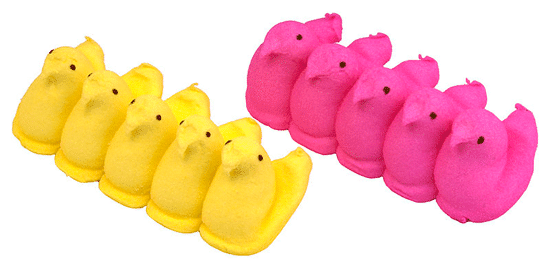Regardless of a person’s religious affiliation (or non-affiliation), the annual Easter holiday delivers a wealth of toys, candies, packaging, etc. that depict bunnies and chicks. People debate whether to age the popular Peeps marshmallow snacks. Cadbury Eggs appear near the registers of grocery, convenience, and general drug stores. Egg dying kits are sold. Popular foods get special bunny-themed wrapping.
Also, many people plan special feasts to celebrate with family and friends.
Compressed air plays a vital role in this holiday time. From farms to production facilities to bottling, packaging and shipping centers, compressed air systems speed conveyers, protect against contamination, control storage temperatures, and keep personnel safe.
Manufacturers and warehouses ensure the safety of these systems through testing their compressed air.
WHAT DO WE TEST FOR?
 The compressed air used in a facility must match the application. Often, there is not a specific code to follow that can cover the needs of all facilities. One type of operation may have a higher need to guard against desiccation; another will need to tightly control the possibility of moisture in the system.
The compressed air used in a facility must match the application. Often, there is not a specific code to follow that can cover the needs of all facilities. One type of operation may have a higher need to guard against desiccation; another will need to tightly control the possibility of moisture in the system.
Both direct and indirect product contact points must be identified and managed, and how those compressor systems are monitored and maintained affects the safety and quality of the food and beverages we see at Easter (or any other time of year).
Usually, it is up to the manufacturers to ensure they are providing safe production, handling and storage/shipping. Compressed air testing from independent, expert third-party sources is a major way for facilities to demonstrate their compliance with regulations and their dedication to safety. Testing can also help them understand issues of energy efficiency in their facilities.
Small fluctuations in the purity of the air can have significant impact on energy efficiency without having any real impact on product quality. A soda, for example, does not need to be manufactured and bottled with the exceptional stringency of a clean room in a medical device manufacturing plant. This is not to suggest that sodas are less clean; but it is a matter of extremely finite particulate or moisture management in production with compressed air—a point that may greatly impact the costs of production.
TRI Air Testing has 39 years of international experience testing compressed air for safety and efficiency. Our air testing kits, available for purchase or on loan, give clients in the food and beverage field, emergency services profession, recreational and commercial diving industries, and other sectors the confidence and evidence they need of responsible compressed air usage and management.
RECOMMENDED READING
If you haven’t found us on Facebook or on Twitter yet, please do. We enjoy sharing links to articles involving compressed air, understanding it, and the many ways it improves or can improve our lives. We also like to share stories of how important issues such as safety and sustainability are impacted by how compressed air understanding (or misunderstanding).
A few recent articles that caught our eye:
- “Why Piping Is Important to Compressed Air Efficiency”
- “5 Great Scuba Diving Safety Devices”
- “US Navy Robot Firefighters Prepare for a Test Run”







